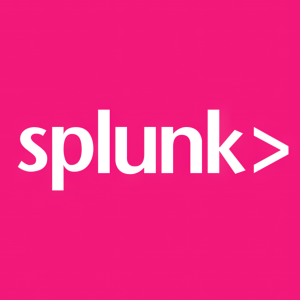Splunk Launches New Observability Cloud
Splunk (NASDAQ: SPLK) launched the new Splunk Observability Cloud, a full-stack, analytics-driven solution aimed at enhancing IT and DevOps functionality. This platform integrates monitoring tools, allowing seamless access to metrics, traces, and logs in real-time without sampling. Industry leaders like Lenovo have reported significant enhancements in operational efficiency, cutting mean-time-to-resolution (MTTR) from 30 minutes to under 5. The platform also offers simplified pricing based on host metrics, catering to increased data volumes and organizational complexities.
- Launch of Splunk Observability Cloud enhances monitoring capabilities.
- Real-time data access without sampling improves operational efficiency.
- Customer success stories indicate significant MTTR reduction.
- Simplified, host-based pricing aligns with customer value.
- None.
Insights
Analyzing...
Splunk Inc. (NASDAQ: SPLK), provider of the Data-to-Everything Platform, today announced the new Splunk® Observability Cloud, the only full-stack, analytics-powered and enterprise-grade Observability solution available. For more information on the Splunk Observability Cloud for IT and DevOps teams solutions visit the Splunk website.
With the Splunk Observability Cloud, IT and DevOps teams can get all their answers in a unified interface with metrics, traces and logs - all data collected in real-time, without sampling and at any scale. The most comprehensive, easy-to-use, and unified Splunk Observability Cloud is recognized as an industry-leading Observability solution.
“With the shift to cloud, IT and DevOps teams are now wrestling with more operational complexity that is compounded by too many existing monitoring tools that have blind spots, siloed data and disjointed workflows,” said Sendur Sellakumar, Chief Product Officer, Splunk. “The Splunk Observability Cloud helps IT and DevOps teams conquer complexity and accelerate cloud transformation for their organizations.”
“With Splunk Observability our mean-time-to-resolution (MTTR) went from 30 minutes to under 5, allowing us to maintain
Splunk Observability Cloud Helps Organizations Accelerate Cloud Transformation
The Splunk Observability Cloud brings together the world’s best-in-class solutions for infrastructure monitoring, application performance management, real user monitoring, synthetic monitoring, log investigation and incident response. Splunk Log Observer, Splunk Real User Monitoring (RUM), and the new Splunk Synthetic Monitoring - products that give IT and DevOps teams unmatched, end-to-end visibility, are now generally available. The full Splunk Observability Cloud includes Splunk Infrastructure Monitoring, Splunk APM, Splunk RUM, Splunk Synthetic Monitoring, Splunk Log Observer, and Splunk On-Call. Backed by Splunk’s industry-leading technology - NoSample™ full-fidelity data ingestion, real-time streaming analytics and massive scalability, Splunk Observability Cloud delivers unprecedented capabilities for monitoring, troubleshooting and resolution of business-critical incidents.
Built for DevOps users and use cases, Splunk Log Observer brings the power of Splunk logging to SREs, DevOps engineers and developers that need a troubleshooting-oriented logging experience. Splunk RUM provides the fastest troubleshooting and most comprehensive view of web browser performance. Together, Splunk APM and Splunk RUM provide the industry’s only end-to-end full-fidelity visibility across the entire user transaction. Splunk Synthetic Monitoring is a new solution powered by the technology from the acquisition of Rigor, and is now integrated across most Splunk products. This best-in-class synthetic monitoring solution improves uptime and performance of APIs, service endpoints, business transactions, and user flows.
“Until now, the tools that IT and DevOps teams rely on to monitor and manage applications and infrastructure have been disconnected, often separated into two or three different platforms,” said Spiros Xanthos, VP of Product Management, Observability and IT Operations, Splunk. “The Splunk Observability Cloud brings all the needed Observability solutions together in a unified interface designed to help customers gain a comprehensive view across all their data and operate at enterprise scale.”
The Splunk Observability Cloud is optimized and designed to consume and manage OpenTelemetry data at scale enabling customers to unlock their data through open source standards. Splunk Observability Cloud is OpenTelemetry-native allowing customers to unify data ingestion without vendor lock-in and reduce resource consumption with the lightweight, open-source OpenTelemetry instrumentation.
Simplified Pricing Helps Customers Tackle Increased Volumes of Data
As data volume and organizational complexities increase, Splunk wants to keep pricing simple and this bundle is designed to do that. With the new Splunk Observability Cloud, Splunk is integrating these capabilities under one clear host-based pricing metric directly tied to the value IT and DevOps teams may gain.
In addition to the Splunk Observability Cloud, Splunk has created cloud technology bundles specific to IT and Security teams. For more information on Splunk Observability Cloud, Splunk IT Cloud, Splunk Security Cloud, using entity pricing or Cloud Foundations using workload pricing, visit the Splunk website.
About Splunk Inc.
Splunk Inc. (NASDAQ: SPLK) turns data into doing with the Data-to-Everything Platform. Splunk technology is designed to investigate, monitor, and analyze and act on data at any scale.
Splunk, Splunk>, Data-to-Everything, D2E and Turn Data Into Doing are trademarks and registered trademarks of Splunk Inc. in the United States and other countries. All other brand names, product names, or trademarks belong to their respective owners. © 2021 Splunk Inc. All rights reserved.
View source version on businesswire.com: https://www.businesswire.com/news/home/20210505005050/en/







